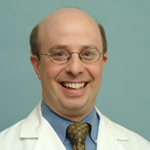Preschoolers often have bouts of coughing or wheezing that send them to the doctor’s office, or in severe cases, to the emergency room or hospital.
Two related studies at Washington University School of Medicine in St. Louis and St. Louis Children’s Hospital are looking at whether medication can prevent respiratory infections in young children from becoming more serious.
The first part of the study is called Azithromycin for Preventing the development of upper Respiratory tract Illness into Lower respiratory tract symptoms in children (APRIL). For this part, Leonard B. Bacharier, MD, a Washington University pediatric asthma and allergy specialist at St. Louis Children’s Hospital, is recruiting children 1 to 5 years old with a history of wheezing with upper respiratory infections. They will be given the antibiotic azithromycin or a placebo at the first sign of illness to determine whether the drug can prevent the development of lower respiratory symptoms, such as wheeze or severe cough.

If a child’s condition worsens, he or she would then begin the second part of the study, called Oral Corticosteroids for treating Episodes of significant LOwer respiratory Tract symptoms in children (OCELOT). Those children would then receive an oral corticosteroid, prednisolone, or a placebo twice daily for five days in an effort to decrease the severity of the illness.
Bacharier says this study is unique because the two trials operate separately but with the same group of patients.
“If the treatment fails for patients in the APRIL study, they move on to OCELOT,” he says.
Patients who respond well to treatment in the APRIL study will not need to participate in OCELOT, he says.
“These trials are designed to both identify new treatments and confirm standard-of-care treatments that reduce the severity of these episodes, providing substantial benefit to this understudied group,” Bacharier says. “Given the childrens’ poor health associated with frequent respiratory infections, physicians and parents need guidance as to the appropriate strategy to treat these illnesses.”
The St. Louis site is seeking 67 children who have had recurrent wheezing in the past year and are up to date with immunizations.
During the study, patients will have physical exams, a blood test and nasal and throat swabs. Parents will answer questionnaires about the child’s medical history, complete diaries of the child’s symptoms and medication use and receive information and instructions on proper medication use. In addition, parents will answer questions about their child’s health during phone calls between study visits.
The study will require up to 10 visits at St. Louis Children’s Hospital or Barnes-Jewish West County Hospital and six phone calls over one year. Eligible participants will receive asthma education, allergy testing, physical exams, asthma medications and supplies, small toys and monetary compensation for each completed study visit.
For more information and study qualifications, please call 314-286-1173 or 1-866-841-2273.
Washington University School of Medicine’s 2,100 employed and volunteer faculty physicians also are the medical staff of Barnes-Jewish and St. Louis Children’s hospitals. The School of Medicine is one of the leading medical research, teaching and patient care institutions in the nation, currently ranked fourth in the nation by U.S. News & World Report. Through its affiliations with Barnes-Jewish and St. Louis Children’s hospitals, the School of Medicine is linked to BJC HealthCare.